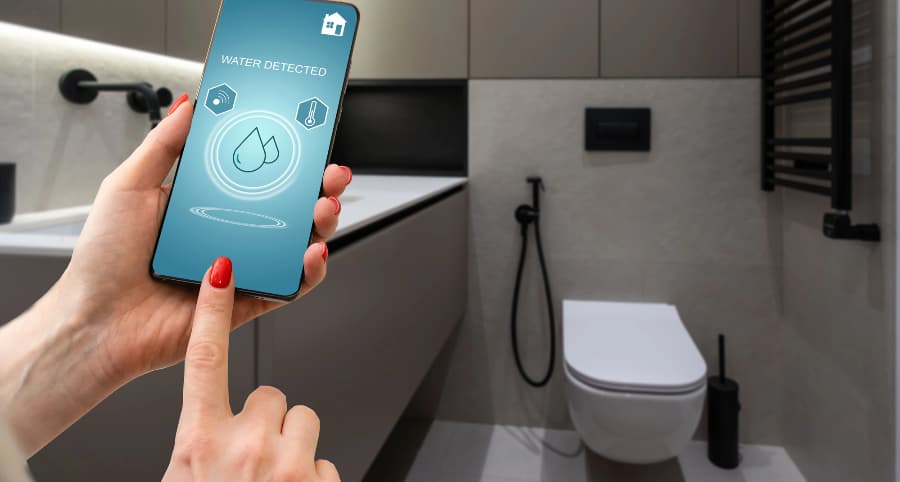How does a water sensor work and why use one with your Appleton smart home?

One minor leak at your house can lead to major difficulties and thousands of dollars worth of damage. You must protect against this threat; luckily, there’s a straightforward way to accomplish this. A water sensor is an economical, simple, and effective solution. Learn how they work and why you should connect water sensors to your Appleton smart home.
How water sensors protect Appleton homes
Water enters homes in various ways, whether from a storm-related incident, plumbing failure, appliance breakdown, or human error. Whatever way it takes place, you have to know immediately, and this is where water sensors come in. But how do they really work?
Most water sensors are conductive and operate with a pair of electrodes. When water enters the area between the electrodes, an electrical link is established, setting off your alarm. You’ll also find capacitive sensors that release an electrical field. Your alarm sounds when water touches the conductive surfaces of these devices and interrupts the field. Optical sensors employing infrared LED light are another possibility.
Get more from your water sensor
A few advanced water sensors give you even more defense as they have incorporated temperature sensors. This is an effective way to prevent frozen pipes. If there’s a severe reduction in temperature, you’ll find out right away. Taking measures before pipes rupture will protect you from water infiltration and exorbitant repair costs.
Why connect water sensors to your Appleton smart home?
When water issues arise, you need to be alerted right away. You can reach this goal by incorporating water sensors into your smart home. Whether you’re there to hear the alarm or somewhere else, you’ll get an instant notification on your cell phone. As an added benefit, your 24/7 monitoring specialists will be alerted. Each second counts in a water emergency to minimize the damage and interruption to your family.
Where should you put water sensors?
Any area prone to flooding is an ideal place for water sensors. Consider installing in these spots:
- Bathrooms: Attach in back of toilets or close to tubs.
- Basements: Water often enters lower levels via cracked walls or due to excessive rain or faulty sump pumps.
- Around water heaters or appliances: Any water-utilizing appliance might leak at some point.
- Underneath sinks: Water sensors are ideal for detecting plumbing leaks in place not easy to see.
- Attics: Identify roof leaks quickly and avoid expensive repairs.
Request water sensors with your Vivint smart home
Give your home the robust protection it requires with modern components from Vivint. Our water sensors in Appleton link to your Vivint cell phone app to deliver automatic alerts whenever your alarm activates. You also get incorporated temperature sensors to avoid frozen pipes. Learn more about the smart home devices available in Appleton by reaching out to (920) 259-2449 today.